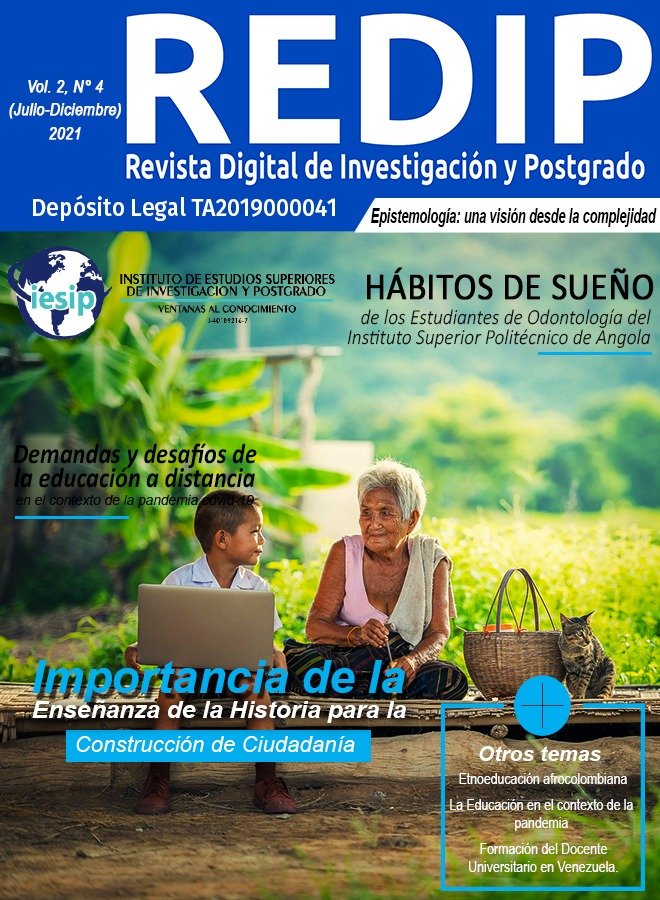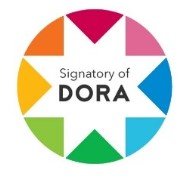Afrocolombian ethnoeducation in thecontext of interculturality in Colombia
DOI:
https://doi.org/10.59654/he2p8a59Keywords:
Ethnoeducation, afrocolombian, multiculturalism, interculturality.Abstract
Today's society is composed of a series of elements that allow us to consider the differences, diversity, traits, realities, circumstances, be they, major and minor, that in some way characterize and identify each of the human groups to which they are that it belongs to, either for ethnic, linguistic, religious, social, professional reasons, among others. In this sense, this essay aims to generate reflections on ethnoeducation in the
afrocolombian context and its relationship with Africanism, from the perspective of ethnodevelopment as a fundamental element for the consolidation of the social system considering the contributions that it provides pedagogy. It is important to highlight
that ethnoeducation in a certain way empowers the afrocolombian population. In the development of the essay, topics such as: multiculturalism from the perspective of Olivé (2004), interculturality according to the approaches of Giménez (2000), afroc-Colombianity based on the Political Constitution of Colombia (1991), afrocolombian ethnoeducation, Meneses were considered (2016); Romero (2008), Muñoz (2010). Ethnoeducation interculturality and own pedagogies Hernández (2015). It was concluded that afrocolombian ethnoeducation moves or transits from two perspectives: the endogenouscommitment, which gives it the role of emancipating, liberating and decolonizing
thought and the exogenous commitment; proposes this as the educational revolution for the country.
Downloads
References
Apple, Michael. (1996). Política cultural y educación. Ediciones Morata, S.L.
Cabrera Otálora, M. I., Nieto Gómez, L. E., & Giraldo Díaz, R. (2018). Capítulo 1: Educaciones propias y etnoeducación en Colombia. Libros Universidad Nacional Abierta y a Distancia, 11 - 40. https://doi.org/10.22490/9789586516495.01.
Constitución Política de Colombia (1991). (Bogotá, D.C). Congreso de la República de Colombia.
Decreto 804 de 1994, por medio del cual se reglamenta la atención educativa para grupos étnicos. Organización Panamericana de la Salud: http://www.col.ops-oms.org/juventudes.
Decreto 1122, Cátedra de Estudios Afrocolombianos. (Bogotá, D.C). Congreso de la República de Colombia.
Giménez, C. (2000). Guía sobre interculturalidad. Colección Cuadernos Q’anil, Proyecto Q’anil-PNUD, Editorial Serviprensa C.A.
Hernández, R. (2015). (comp.). Etnoeducación interculturalidad y pedagogías propias. Instituto de Educación e Investigación Manuel Zapata Olivella. Colombia.
Ley General de Educación. (1994). Congreso de la República de Colombia. (Bogotá, D.C).
Ley 70 de 1993 por la cual se desarrolla el artículo transitorio 55 de la Constitución Política. Departamento Nacional de Planeación: http://www.dnp.gov.co/archivos/ documentos.
Meneses, C. y Yeison, A. (2016). La etnoeducación afrocolombiana: conceptos, trabas, patriarcado y sexismo. A propósito de los 20 años de la Ley General de Educación 115 de 1994. Revista Historia de la educación latinoamericana. 19(27), 35-66.
Muñoz, C. (2010). Etnoeducación crítica. Ediciones centenario.
Olivé, L. (2004). Interculturalismo y justicia social. UNAM. México.
Romero Loaiza, Fernando. (2008). La Educación Indígena en Colombia: Referentes conceptuales y socio históricos. http://www.arqueologia.com.ar/congreso2002/ponencias/fernando_romero_loaiza.htm
Salazar, T. M. de J. (2009). Multiculturalidad e interculturalidad en el ámbito educativo: experiencia de países latinoamericanos. Módulo 1, Enfoque teórico / Manuel de Jesús Salazar Tetzagüic; Instituto interamericano de Derechos Humanos. – San José, C.R.: IIDH.
Downloads
Published
Issue
Section
License
Copyright (c) 2024 Revista Digital de Investigación y Postgrado

This work is licensed under a Creative Commons Attribution-NonCommercial-ShareAlike 4.0 International License.
Esta licencia permite a los reutilizadores distribuir, remezclar, adaptar y desarrollar el material en cualquier medio o formato únicamente con fines no comerciales, y solo siempre que se atribuya al creador. Si remezclas, adaptas o construyes sobre el material, debes licenciar el material modificado bajo términos idénticos. CC BY-NC-SA incluye los siguientes elementos:
![]() POR: se debe dar crédito al creador.
POR: se debe dar crédito al creador.![]() NC: Sólo se permiten usos no comerciales de la obra.
NC: Sólo se permiten usos no comerciales de la obra.![]() SA: Las adaptaciones deben compartirse en los mismos términos.
SA: Las adaptaciones deben compartirse en los mismos términos.











